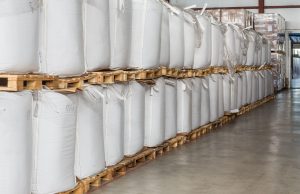Resin Symposium Recap

Mike Landin
Sr. Manager Business Development // Gulf Winds
mlandin@gwii.comÂ
Port Houston recently organized an informative Resin Symposium in Houston highlighting  the continued market growth  in petrochemical exports. Houston and the Gulf Coast are well positioned with low cost feedstock, port infrastructure, packaging expansion, and access to major trade routes.
Volumes are now coming online with the first wave of plant expansions completed in 2017. Resin exports will continue to climb each year through 2022 with most volume being exported through Port Houston or being railed to the West Coast through DFW.
There are many links in the supply chain, and all stakeholders must collaborate with their partners to efficiently ship their cargo.
Key takeaways from the Symposium:
- The rise of the middle class, globally, has created an increased demand for petrochemical products. The Gulf Coast in uniquely positioned  to produce these petrochemical products because of the inexpensive feed stock found in shale gas. Although polyethylene exports saw a net decrease in 2017, the amount of polyethylene exports are forecasted to double between Q3 2018 and Q3 2019. This is expected to increase container exports to an additional 450 per day by 2020.
- The expansion of the Panama Canal has already proven to be beneficial to Houston already. For example, in 2017, Port Houston saw a 15% increase in loaded import container volumes . Retail distribution continues to grow along with manufacturing and .
- Planning and collaboration are going to be crucial as exports continue to grow. Shippers should continue to review their operations of warehouses and distribution centers. For example, Port Houston has extended the Bayport container terminal hours to 11:00 pm. Shippers should analyze their operations to see if they are limiting capacity by their current hours of operation. If a driver can pick up a container until 11:00 pm, the driver needs to have a receiving location to take the container. In addition, consider how quickly drivers are getting in and out of your facility. Long wait times and inefficiencies will quickly reduce capacity for shippers. As the market surges, are you a shipper of choice?
- The new Texas overweight trucking legislation is NOT a blanket rise in cargo weights. A truck that meets the safety requirements for the new legislation is a new model truck and more expensive than current trucks in the market. Additionally, specialized chassis must be ordered to meet the requirements, along with a $6000 permit cost per truck. Additional costs factor into the drayage rate, making each move more expensive than previously anticipated. For this reason, resin shippers are focused on weights historically hauled in the market using day cab equipment and lightweight chassis.
For more detailed information please contact your Gulf Winds business development representative and we can walk through examples at every weight level.
Gulf Winds is grateful to be headquartered in Texas where there is so much economic opportunity across all sectors. Stay tuned as this story continues to develop in 2017.